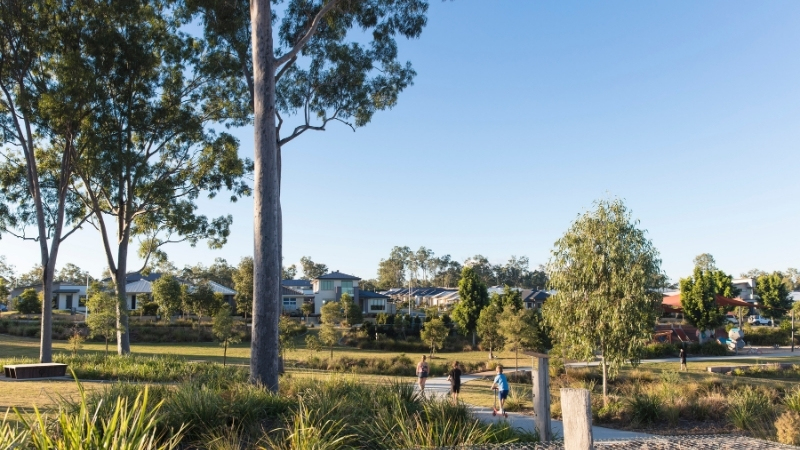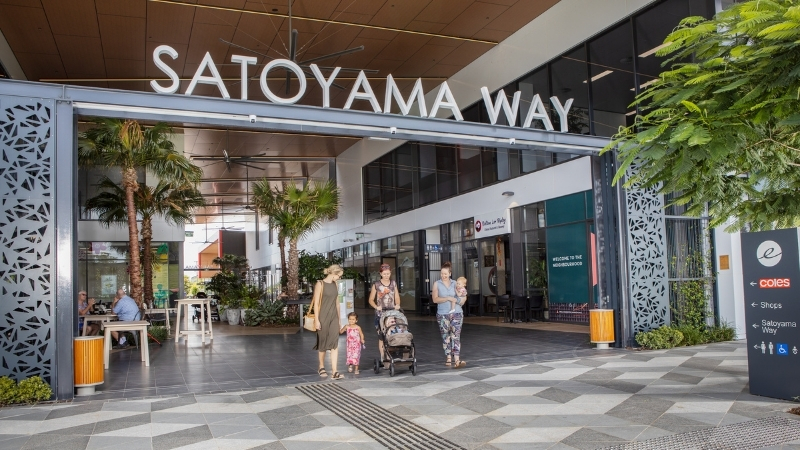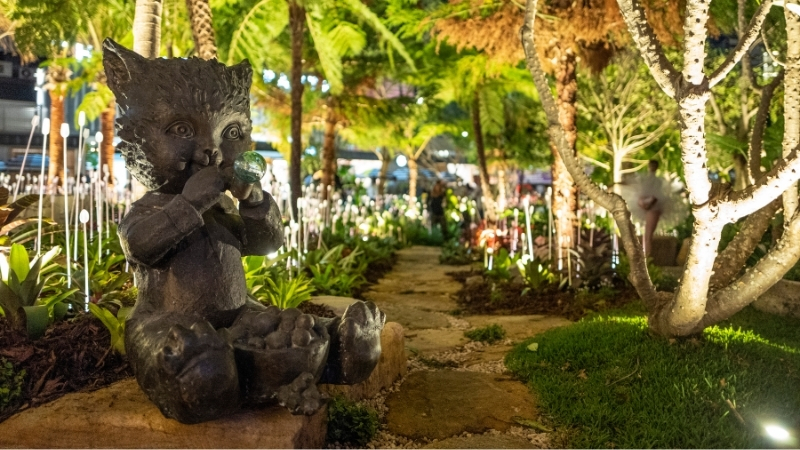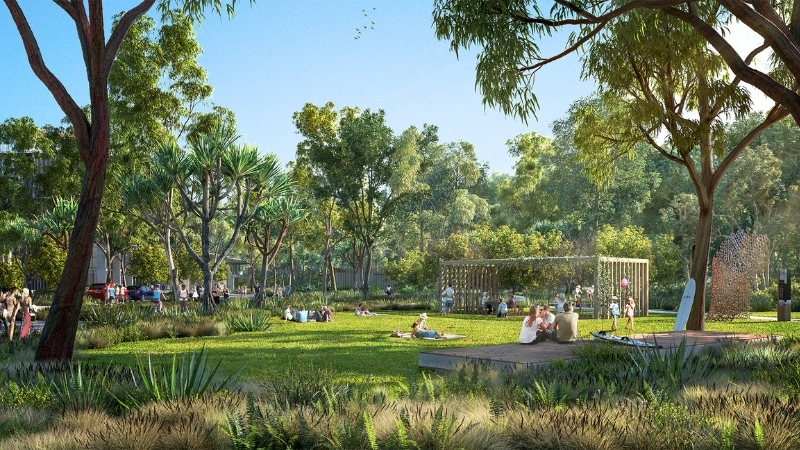Sekisui House Australia Bolsters World-Leading Green Credentials
Sekisui House Australia is leading the way in sustainability, with its four Queensland residential and mixed-use projects either targeting or achieving a minimum 5-Star Green Star certification from the Green Building Council of Australia.
Across Ripley Town Centre and Ecco Ripley near Ipswich, West Village in Brisbane’s West End and Yaroomba Beach on the Sunshine Coast, Sekisui House Australia continues to invest in green initiatives, demonstrating the master developer’s ongoing commitment to holistic sustainable design.
Ecco Ripley re-certification

In a first for the Ripley region, residential community Ecco Ripley recently received re-certification of its 5-Star Green Star communities rating following its original certification in 2015.
Sekisui House Australia chief executive and managing director Hide Seguchi, said this achievement aligned with the company’s “love of humanity” philosophy—to create communities and homes that focus on the integration of existing natural habitats with built environments.
“We place sustainability at the core of our management approach, because we have not only the ability, but also the responsibility to make our homes and communities the happiest places in the world,” Seguchi said.
“Our continued investment in research and development allows us to create industry-leading living environments that also seek to protect and conserve our ecosystem.”
Ecco Ripley integrates built environment, the landscape and sustainable features to not only enhance liveability, but promote economic prosperity, reduce environmental impacts and foster innovation.
For example, Sekisui House Australia’s “Mirai” home product range —exclusive to Ecco Ripley—features self-cleaning facades, insulation using 80 per cent recycled material, solar panels and a smart security system, helping residents save money on energy while reducing the community’s carbon footprint.
There’s a seamless connection to nature, with more than 20 per cent of Ecco Ripley to be dedicated to green, open space, encouraging walkability and active living.
Ripley Town Centre milestone

The coveted 5-Star Green Star Design and As-Built certification at Ripley Town Centre represents Australian excellence in sustainability, and marks a significant milestone as Sekisui House Australia continues to deliver on the Ripley Town Centre vision.
Green Building Council of Australia chief executive, Davina Rooney, said Sekisui House Australia had consistently shown outstanding leadership in sustainable building.
“With Ripley Town Centre, Sekisui House Australia is realising our shared ambition for healthier, more resilient and positive places for people, and we congratulate them on attaining this Green Star certification,” Rooney said.
“This project epitomises what we see as the optimal future for Australia’s urban environments, one where buildings are highly efficient, with a significant use of renewables, continually innovating with outstanding community connections and implementing leading sustainability practices.”
Sustainable initiatives include solar panels positioned on the Centre’s roof and carpark, generating around 75 per cent of the electricity for the existing shopping environment which feeds into a centralised, private community energy network.
Energy-efficient glazing, shading and insultation also provide thermal comfort to occupants and minimise energy consumption.
At its core, Ripley Town Centre has been guided by the Japanese principle of “Satoyama”, meaning “ribbons of green”, which focuses on the mutual benefits of integrating existing natural habitats with the built environment to promote greater health and wellbeing.
The “Satoyama” concept is strongly reflected throughout the centre, with sounds of running water and lush landscaping through the spine of the mall.
World-leading West Village

Set against the backdrop of the iconic Brisbane heritage place, the Peters Ice Cream Factory, the $1.1 billion mixed-use West Village development is at the forefront of sustainability, having achieved a world-leading 6-Star Green Star Communities rating in 2017—the highest accolade for masterplanned precincts in Australia.
Importantly, the Green Building Council of Australia certification recognises not only environmental initiatives, but also a community’s ability to enhance health, prosperity and quality of life.
Seguchi said that in addition to environmental initiatives, such as organic waste diversion and grey water recycling, arts and culture has played a key role in delivering social sustainability outcomes.
“The relocation of Metro Arts from the Brisbane CBD to West Village will generate numerous cultural benefits for the community, delivering West End’s first new theatre in 25 years, two galleries and other bespoke facilities,” Seguchi said.
“Likewise, our award-winning artist-in-residence program with David and Yuge Bromley has had a profound impact on the evolution of the precinct, ensuring artist involvement in design and delivery of all aspects of the development and particularly within the public realm.
“Also, our partnership with Creative Kids Brisbane to create a children’s art studio in 2016 has seen more than 40,000 participants access the centre.”
Yaroomba Beach targets

While Yaroomba Beach is in its planning and approvals phase, Sekisui House Australia remains committed to targeting a 5-Star Green Star for The Westin Coolum Resort and Spa in the Design and As Built category, and a 6-Star Green Star for the masterplan in the communities category.
With only one other hotel achieving a 5-Star rating in Australia to date, The Westin Resort will seek to implement energy and water metering, waste management systems, rainwater harvesting, targets for recycling of construction waste and improved air quality, and a range of other green initiatives to achieve the sustainability target.
The resort is also on track to receiving an Advanced Ecotourism Certification—the highest rating from Ecotourism Australia for achieving best practice in operational and environmental management, as well as providing education and awareness to guests on conservation of the surrounding natural areas.
From a masterplan perspective, the Coastal Discovery Centre and Trail will play a key role in educating and engaging the community about beach ecology and Indigenous heritage from the area.
Digital platforms will work to enhance connectivity, while the community management scheme will keep residents informed on the management and governance through a dedicated community development plan.
In line with all Sekisui House Australia developments, waste management and water saving initiatives will also be built into the masterplan.
These combined projects, which represent an investment of almost $4 billion on project completion, not only deliver economic benefits for their communities and the Queensland economy, but also continue to elevate the standard of social and environmental sustainability.
The Urban Developer is proud to partner with Sekisui House Australia to deliver this article to you. In doing so, we can continue to publish our free daily news, information, insights and opinion to you, our valued readers.














